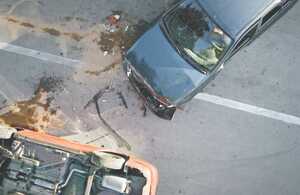What to Do After a Car Accident in New Jersey
Body
Car accidents are stressful, and in the heat of the moment, it’s easy to feel overwhelmed. Whether it's a minor fender bender or a serious collision, knowing what steps to take can make a big difference in the aftermath. If you ever find yourself in a car accident in New Jersey, here's a guide on what to do. Plus, if you need legal help, consulting Car Accident Attorneys in New Jersey can be a smart move.
1. Check for Injuries and Safety First
First things first—check if you or anyone else is injured. Your safety and the safety of others should be the top priority. If there are any injuries, call 911 immediately and request medical assistance. Even if injuries seem minor, it's a good idea to get checked out by a medical professional. Sometimes, symptoms of injuries like whiplash can show up later.
After ensuring everyone's safety, if it's safe to do so, move your vehicle to the side of the road to avoid further accidents. Turn on your hazard lights to alert other drivers.
2. Call the Police
In New Jersey, it’s required by law to report any accident that results in injury, death, or significant vehicle damage. So, call the police even if the accident seems minor. An official police report can be crucial later when dealing with insurance companies or if legal action is necessary.
When the officers arrive, provide them with accurate details but avoid admitting fault. The police report will document the accident scene and gather information from all parties involved.
3. Exchange Information
Exchanging information with the other driver is crucial. Make sure you get:
- Name, address, and contact information
- Insurance company and policy number
- Driver’s license number
- Vehicle make, model, and license plate number
If there are any witnesses, get their contact details as well. This information can be valuable when piecing together what happened.
4. Document the Scene
Use your phone to take photos of the accident scene. Capture vehicle damage, road conditions, skid marks, traffic signs, and any visible injuries. This evidence can be vital if there are disputes about how the accident occurred.
Also, take note of the time, date, weather conditions, and any other relevant details. The more information you have, the better.
5. Notify Your Insurance Company
After gathering all the necessary information, contact your insurance company to report the accident. Provide them with the details and any photos you took at the scene. Be honest and stick to the facts. Keep in mind that some insurance policies have strict timelines for reporting accidents, so don't delay.
6. Consult Car Accident Attorneys in New Jersey
Accidents can get complicated, especially when injuries are involved or when fault is disputed. That's where Car Accident Attorneys in New Jersey come in. An experienced attorney can help protect your rights, negotiate with insurance companies, and if needed, represent you in court.
They can guide you through the legal process, ensuring you get the compensation you deserve for medical bills, lost wages, and other damages. Even if you're unsure about needing an attorney, a consultation can clarify your options.
7. Follow Up on Medical Treatment
Even if you didn't feel hurt right after the accident, it’s essential to follow up on any medical advice given by healthcare professionals. Some injuries, like concussions or soft tissue damage, might not be immediately apparent.
Keep all medical records and receipts, as they will be crucial for insurance claims or legal proceedings. Following your doctor’s advice also helps demonstrate that you're taking your recovery seriously.
Final Thoughts
Knowing what to do after a car accident in New Jersey can save you a lot of headaches down the road. From ensuring everyone's safety and calling the police to documenting the scene and contacting Car Accident Attorneys in New Jersey, every step plays a role in protecting your rights and interests.
Accidents are never pleasant, but being prepared and knowing your options can make a tough situation a little easier to handle. Stay calm, stay safe, and don’t hesitate to seek the professional help you might need.








Comments